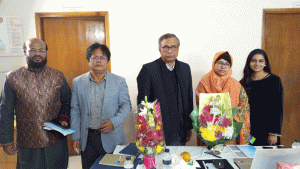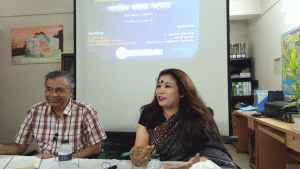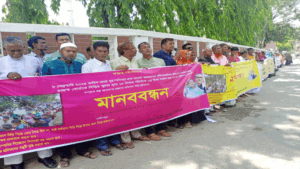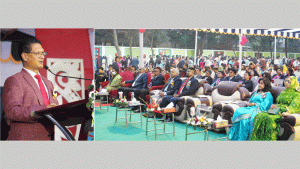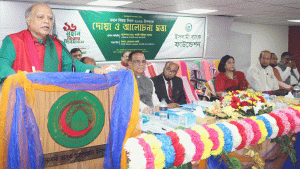Driving Indian papers editorially remarked today on the result of parliamentary races in Bangladesh saying Prime Minister Sheik Hasina’s arrival to control is “uplifting news” for relations with India, however advised against her administration’s “tyrant” strait.
Hindustan Times named Awami League’s avalanche triumph in parliamentary surveys as “shocking” and The Times of India depicted it as “monstrous” while The Hindu opined Hasina “remains hugely well known” on the back of an “impressive record of monetary development and social advancement.”
The article in Hindustan Times said “in the most recent decade of her standard, Ms Hasina has had a blended reputation. While Bangladesh’s economy has flooded ahead, her record on human rights leaves a ton to be wanted.”
“Indeed, even as Bangladesh is on the precarious edge of shedding its tag of slightest created nation, the administration has squashed all resistance powers in that nation. Ms Hasina’s routine has pestered writers, captured resistance pioneers and stayed detached to the killing of bloggers,” it said including “New Delhi would do well to unobtrusively remind her every now and then to hold her dictator senses under wraps.”
The Times of India publication said “it can’t be denied that Hasina remains a massively prominent and under her Bangladesh’s economy has posted solid development … and the nation is ready to join the creating nations class by 2024.”
It likewise said “Hasina and the Awami League have a mainstream vision for Bangladesh … Additionally, the Awami League allotment has split down hard against Islamists and nearby dread cells. Additionally, the ties among India and Bangladesh have taken off under Hasina… “
Bringing up that “Hasina’s arrival in charge of Bangladesh should additionally help New Delhi and Dhaka ties,” the Times of India said “one of the issues the restriction crusaded on, reasonably, was the expanding tyrant methods for the Awami League government. Hasina would do well to change this rapidly. Neglecting to do as such would give degree to the Islamists to arrange a rebound.”
The Hindu remarked that the Awami League “set the motivation for the race and commanded the battle. In any case, the size of the triumph would have shocked even her supporters.”
Notwithstanding, it said “the administration and the Election Commission could have held the decision without being available to charges that it was controlled” and asked the Election Commission to “lead a reasonable examination concerning claims of apparatus to reestablish confidence in the survey procedure.”
“There was a crackdown on the restriction in the run-up to surveying day. Master resistance sites were brought down, a huge number of activists were imprisoned, and political brutality was released to target BNP individuals. The circumstance was grave to the point that even one of the race magistrates said there was no dimension playing field. … Her generally amazing record has been defaced by her administration’s dictator character.
“The (race) triumph is a shot for Ms. Hasina to patch her courses, to be progressively comprehensive and run an administration that regards the standard of law, the fundamental privileges of natives and institutional opportunity,” The Hindu said.
It included that “For India, Ms. Hasina’s triumph is uplifting news. New Delhi and Dhaka have extended financial, security and vital ties under her authority. This should proceed with, regardless of what the general race result in India in 2019.”
The article in The Economic Times said the Hasina government’s “solid arm estimates that allow the undermined restriction to cry foul were famously avoidable.”
It said “the contracting political nearness of the Bangladesh Nationalist Party, which backs Islamists, will guarantee that the nation ends up far less cordial to Islamists.”
The paper said Sheik Hasina’s discretionary triumph “is critical for New Delhi with regards to countering China’s impact in the area. India must keep on cooperating Bangladesh in its financial development, urging Indian organizations to put and cooperating in environmental change, fear based oppression, relocation and vitality.”

